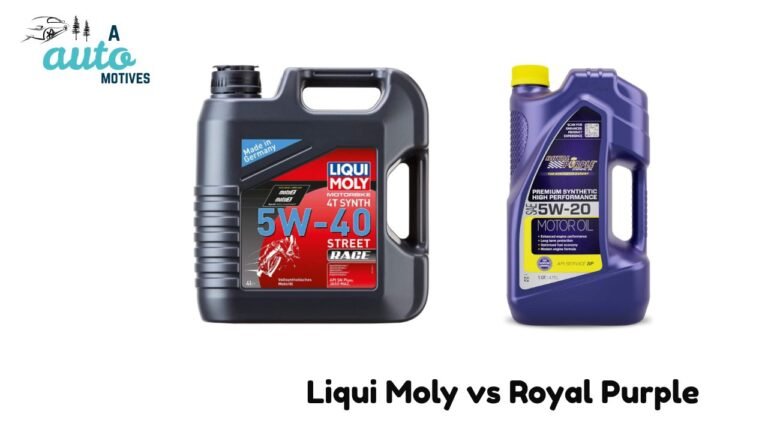Can You Put Synthetic Oil in Any Car?

Let’s be honest—we’ve all stood in the auto aisle, staring at bottles of oil, wondering what on earth is the difference between synthetic and conventional oil? And more importantly, can you put synthetic oil in any car without wrecking your engine?
You might’ve heard a mechanic toss around terms like “viscosity” or “oil breakdown.” Or maybe your cousin told you synthetic oil ruins older engines. The truth? It’s a bit more nuanced—but don’t worry, I’ll break it down like I’m chatting with you over tea.
Think of synthetic oil as the premium option. Like switching from regular tea to premium Darjeeling—it costs more, but the performance is better. Still, is that upgrade always safe for your engine?
In this guide, we’ll dive deep into the world of motor oils. We’ll uncover myths, break down science in simple terms, and help you decide what’s best for your car—and your wallet.
In This Article
- 1 What Is Synthetic Oil, Really?
- 2 Why People Hesitate to Use Synthetic Oil in Older Cars
- 3 Understanding Oil Viscosity and Compatibility
- 4 Can You Put Synthetic Oil in Any Car: The Real Answer
- 5 The Pros and Cons of Using Synthetic Oil in Any Vehicle
- 6 Comparing Synthetic Oil Brands: Which One to Trust?
- 7 When Is the Right Time to Switch to Synthetic Oil?
- 8 How Often Should You Change Synthetic Oil?
- 9 Synthetic Blend vs Full Synthetic: What’s the Difference?
- 10 Common Myths About Synthetic Oil—Debunked
- 11 Real Talk: How Synthetic Oil Saved My Engine
- 12 Final Thoughts: Should You Use Synthetic Oil in Your Car?
What Is Synthetic Oil, Really?

Synthetic oil is not just refined; it’s chemically engineered. It starts with base oil, but manufacturers alter the molecules in a lab for better performance. They remove impurities and customize its structure. The result? An oil that can handle extreme temperatures, lasts longer, and protects your engine better than regular oil.
Here’s a simple comparison:
| Feature | Conventional Oil | Synthetic Oil |
|---|---|---|
| Base Material | Crude oil, minimally refined | Chemically engineered base stock |
| Performance in Heat | Breaks down faster | Maintains stability |
| Cold-Weather Start | Thickens in cold | Flows smoothly |
| Oil Change Interval | Every 3,000-5,000 miles | Every 7,500–15,000 miles |
| Engine Protection | Basic | Superior |
Now, you might think this means synthetic oil is always better. And yes, it usually is. But before you rush to pour it into your engine, there are some things you need to consider.
Why People Hesitate to Use Synthetic Oil in Older Cars
You’d be surprised how many folks still think synthetic oil is risky for older engines. I get it—there’s something nostalgic about keeping things traditional. Like still playing your old cassette tapes or using a flip phone.
Back in the day, synthetic oil was thicker, and it could cause leaks in older engines. The gaskets in older engines weren’t designed for it. But we’re talking decades ago. Technology has come a long way.
Modern synthetic oil is much more compatible with older engines, as long as the engine is in good condition. If you’ve been maintaining your car regularly, there’s no reason you can’t switch. It won’t magically cause leaks unless your engine already had weak seals.
To make it even simpler:
-
If your car burns oil fast, don’t blame synthetic oil—it’s the engine.
-
If your gaskets are worn out, they’ll leak with any oil.
-
If your engine’s healthy, synthetic oil can actually extend its life.
Understanding Oil Viscosity and Compatibility
Now, let’s touch on something you’ve probably seen on oil bottles: 5W-30, 10W-40… what does this even mean?
This is your oil’s viscosity—or how thick it is at certain temperatures. The “W” stands for winter. The first number tells you how the oil flows in the cold, while the second tells you how it performs when hot.
Here’s the cool part: synthetic oils are made to stay stable across a wider range of temperatures. That’s especially helpful if you live somewhere with harsh winters or brutal summers.
But here’s where people get it wrong—don’t just grab any synthetic oil. It needs to match what your manufacturer recommends.
If your manual says 5W-30, stick with that—even if you switch to synthetic. Using the wrong viscosity can hurt engine performance or fuel economy.
Quick Tips:
-
Match viscosity first, then choose synthetic.
-
Always check your owner’s manual.
-
Don’t mix oils unless necessary (it won’t destroy your car, but it’s not ideal).
Can You Put Synthetic Oil in Any Car: The Real Answer
Here’s the million-dollar question—can you put synthetic oil in any car? The short answer is: Yes, you can. The long answer? You should, but with a few precautions.
Synthetic oil works well in most modern engines and is compatible with nearly all vehicles on the road today. Even older engines can benefit from synthetic oil’s superior performance, as long as they are not already leaking or severely worn out.
Here’s when you should definitely use synthetic oil:
-
You drive in extreme heat or cold.
-
You often tow or carry heavy loads.
-
You want longer intervals between oil changes.
-
You care about better engine longevity.
When might you hold off?
-
Your engine is already leaking oil.
-
Your mechanic insists based on specific wear.
-
Your manual specifically forbids it (very rare!).
Let’s clear up one final myth: switching from conventional to synthetic won’t “shock” your engine. You don’t need a fancy flush or a transition plan. Just drain the old oil, replace the filter, and pour in the synthetic. Done.
The Pros and Cons of Using Synthetic Oil in Any Vehicle
Alright, let’s be fair. Everything has its ups and downs, right? Even your favorite tea shop probably has one dish you don’t like. Let’s look at both sides.
Pros of Using Synthetic Oil
-
Better lubrication even in extreme temperatures
-
Longer oil change intervals save time and money
-
Reduces engine wear and sludge buildup
-
Improves fuel economy slightly in newer engines
-
Cleaner emissions (great for the environment)
Cons of Using Synthetic Oil
-
Costs more upfront (but can balance out over time)
-
May expose existing leaks in worn engines
-
Not always necessary for low-mileage, easy-use cars
But here’s a personal insight: I once switched my 2001 Honda Civic to synthetic after years of using regular oil. I was nervous. But within weeks, I noticed smoother startups and a quieter engine. And believe me, that Civic ran like a champ till 300,000 miles.
Comparing Synthetic Oil Brands: Which One to Trust?
When you’re choosing synthetic oil, not all bottles are created equal. Just like tea—some taste earthy, others floral. It’s all about quality and consistency.
Here’s a look at some well-known brands:
| Brand | Key Features | Price Range |
|---|---|---|
| Mobil 1 | Trusted by many automakers, great protection | $$ |
| Castrol EDGE | High-performance, good under pressure | $$ |
| Valvoline SynPower | Balanced formula, widely available | $$ |
| Royal Purple | Premium performance, racing focus | $$$ |
| Pennzoil Ultra | Made from natural gas, clean engine tech | $$ |
Choose what fits your car, driving style, and budget. You don’t always need the most expensive one. The real win is sticking to regular maintenance.
When Is the Right Time to Switch to Synthetic Oil?
So now you know you can use synthetic oil. But when should you switch?
Here’s the honest truth—it depends on your car and how you drive it. If you’ve been using conventional oil for years, it’s not too late to switch. In fact, switching to synthetic oil can be one of the best decisions you make for your car’s health.
If you drive in harsh climates, sit in traffic a lot, or have an older engine that’s still mechanically sound, synthetic oil gives you more protection and peace of mind.
Here are some signs that it’s a good time to switch:
-
Your engine runs hot or loud.
-
You’re taking longer road trips more often.
-
You want to stretch the time between oil changes.
-
You recently bought a used car and want to give it a fresh start.
In one case, my friend switched his 2005 Toyota Corolla to synthetic after noticing it felt sluggish in winter. After just one oil change, cold starts felt smoother, and mileage slightly improved. It’s these small but real experiences that show the benefits go beyond theory.
How Often Should You Change Synthetic Oil?
This is one of the biggest perks—and surprises—for new synthetic oil users.
While conventional oil needs changing every 3,000–5,000 miles, synthetic oil can last up to 7,500, 10,000, or even 15,000 miles, depending on the brand and your driving conditions. That’s fewer visits to the mechanic, and fewer weekends lost waiting at a shop.
Still, don’t just go by mileage alone. Here’s what you should factor in:
-
Driving habits: Short trips or heavy city traffic? Change sooner.
-
Climate: Extreme cold or hot weather affects oil faster.
-
Engine condition: Older engines might still benefit from shorter intervals.
-
Oil life monitor: Many cars now have sensors that tell you when to change oil—trust them.
Tip: Always check the oil color and level monthly. Even if it’s synthetic, low oil is still dangerous.
Synthetic Blend vs Full Synthetic: What’s the Difference?
You’ll see two common types of synthetic oil on shelves: full synthetic and synthetic blend. Let’s break them down in simple terms.
-
Full synthetic is 100% lab-made, offering the highest performance and longest lifespan. Think of it like premium green tea—pure, strong, refined.
-
Synthetic blend mixes synthetic oil with conventional oil. It’s cheaper but doesn’t perform as well as full synthetic.
So, which should you choose?
| Feature | Full Synthetic | Synthetic Blend |
|---|---|---|
| Price | Higher | Moderate |
| Performance | Best under all conditions | Moderate |
| Engine Protection | Maximum | Better than conventional |
| Oil Change Interval | 7,500–15,000 miles | 5,000–7,500 miles |
Use full synthetic if you drive long distances, own a turbocharged engine, or want the best protection possible. Go for a blend if you want a budget-friendly option that’s still better than regular oil.
Common Myths About Synthetic Oil—Debunked
You’ve probably heard these myths from someone. But let’s clear them up once and for all, because knowing the truth is what builds real trust with your car—and your wallet.
Myth 1: Synthetic oil causes leaks.
Truth: Synthetic oil can reveal leaks, but it doesn’t cause them. It’s thinner and flows better, so if your seals are worn, they might start leaking—but that’s not the oil’s fault.
Myth 2: Once you switch to synthetic, you can’t go back.
Truth: You can switch back and forth. It’s not ideal, but it won’t damage your engine. That said, it’s better to stick to one type for consistency.
Myth 3: You can’t use synthetic oil in older cars.
Truth: You can, and it may actually be better for high-mileage engines if the gaskets and seals are in good shape.
Myth 4: Synthetic oil is only for luxury or sports cars.
Truth: Any car can benefit from synthetic oil, even a 2002 Corolla or a used minivan. It’s about protection and longevity—not just speed.
Real Talk: How Synthetic Oil Saved My Engine
Let me share something personal.
A few years ago, I drove a second-hand Ford Fusion. It was running okay but felt sluggish. My mechanic suggested trying synthetic oil, even though I thought it was a “luxury.” I hesitated because of the cost. But eventually, I went for it.
The result? Not only did the engine sound quieter, but fuel economy improved slightly, and the car felt “lighter” on acceleration. More importantly, the oil didn’t darken as fast, and I could stretch out the oil changes.
Sometimes, car maintenance feels like a gamble. But this? It felt like investing in peace of mind.
Final Thoughts: Should You Use Synthetic Oil in Your Car?
So, can you put synthetic oil in any car?
Yes—you absolutely can. Whether you drive a brand-new SUV, a beat-up hatchback, or your dad’s old sedan, synthetic oil can work wonders. It protects better, lasts longer, and makes your engine feel smoother. The key is making sure the viscosity matches what your engine needs.
It’s not just about smoother rides—it’s about fewer breakdowns, better fuel economy, and less stress over time. Think of it as giving your car a better quality of life. After all, you rely on it every single day. Doesn’t it deserve the best?






